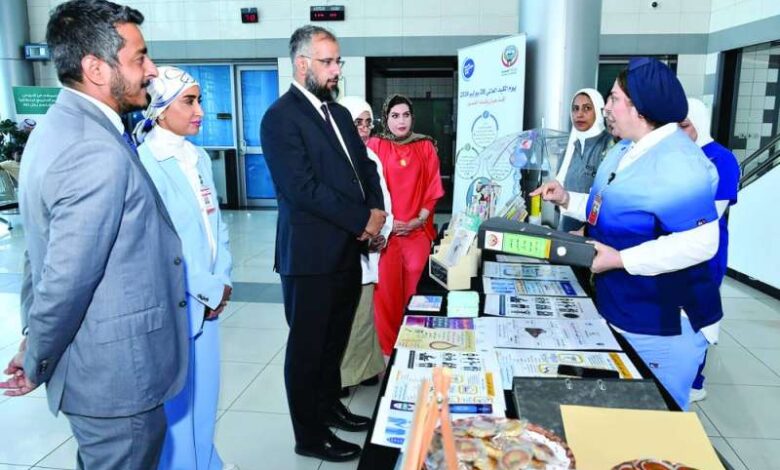Hepatitis B cases in Kuwait plummet over 30% since 2015
The country follows a policy of conducting advanced laboratory tests to detect virus carriers in the blood of the most vulnerable groups.

-
Kuwait, in collaboration with global partners, aims to eliminate the disease by reducing new cases by 90% and deaths by 65%, according to WHO.
-
Hepatitis still affects more than 300 million people around the world and causes more than one million deaths annually, despite being a preventable disease.
-
“Kuwait has significantly reduced hepatitis spread through early detection and treatment, using advanced devices,” said Sarah Al-Qabandi, Acting Director of the Health Department.
Dr. Munther Al-Hasawi, the Assistant Undersecretary of the Ministry of Health for Public Health Affairs, announced that the infection rates of Hepatitis B in Kuwait have decreased significantly by over 30 percent since 2015, according to Al Rai newspaper.
This was stated by Al-Hasawi during his patronage and attendance on Sunday at the celebration of World Hepatitis Day, which falls on July 28 each year, and this year is launched under the slogan ‘Time to Act.’ He said, “This day is a good opportunity to raise awareness of viral hepatitis and celebrate the great achievements made in combating it, especially the discoveries in the field of prevention.”
He said, “Hepatitis still affects more than 300 million people around the world and causes more than one million deaths annually, despite being a preventable disease.”
He added, “Kuwait is working with partners and countries around the world to make progress towards eliminating hepatitis B. According to the World Health Organization (WHO), the country can eliminate hepatitis B when new cases decrease by 90 percent and deaths decrease by 65 percent.
Advanced laboratory tests
Al-Hasawi stressed that “Kuwait follows a policy of conducting advanced laboratory tests to detect virus carriers in the blood of the most vulnerable groups, including those seeking residency and work, blood donors, and those undergoing routine premarital examinations, as well as health workers, pregnant women, kidney dialysis patients, and other high-risk groups.”
He concluded by saying, “The awareness campaign involves forty preventive health centers and focuses on various health aspects of viral hepatitis, such as early detection through testing, the importance of medical examination if symptoms appear, and the significance of prevention through vaccination.”
For her part, Sarah Al-Qabandi, the Acting Director of the Health Department, said, “Kuwait has made significant contributions to reducing the spread of hepatitis in its various forms.” She noted that “there are several ways these viruses can spread, and we are working to limit them by providing necessary devices for early examination to identify and treat cases as quickly as possible.”
She also pointed out that “limiting the spread depends on raising awareness. Therefore, the ministry celebrates World Hepatitis Day to promote prevention methods, and the number of people infected with these viruses is decreasing.”
Reasons for the decline
Dr. Munther Al-Hasawi attributed the significant decrease in hepatitis infections in Kuwait to “the high rates of coverage with basic vaccinations, including the hepatitis B vaccination, which is given to all newborns on the first day of birth in both the public and private sectors, where the coverage rate for this dose has reached 99 percent, one of the highest rates in the world.”
He pointed out that “the State of Kuwait was a pioneer in this field, as the vaccination was first introduced for newborns at the beginning of 1990, before it was adopted by most countries around the world.”
Health workers’ vaccination
Al-Hasawi explained that “the State of Kuwait is working to ensure the vaccination of all health workers, kidney dialysis patients, and other high-risk groups through an integrated health plan to prevent infection among these populations.”
Awareness and prevention
Al-Hasawi stressed the importance of awareness messages and their role in the early detection of infection through examination, particularly for individuals who have been exposed to risk factors such as sexual contact or needle drug use.
He explained that hepatitis A and E, which are transmitted through food, can be prevented by eating clean, uncontaminated food and washing hands regularly. He added that hepatitis B and C, which are transmitted through needles, can be prevented by avoiding illicit relationships and drug use.












